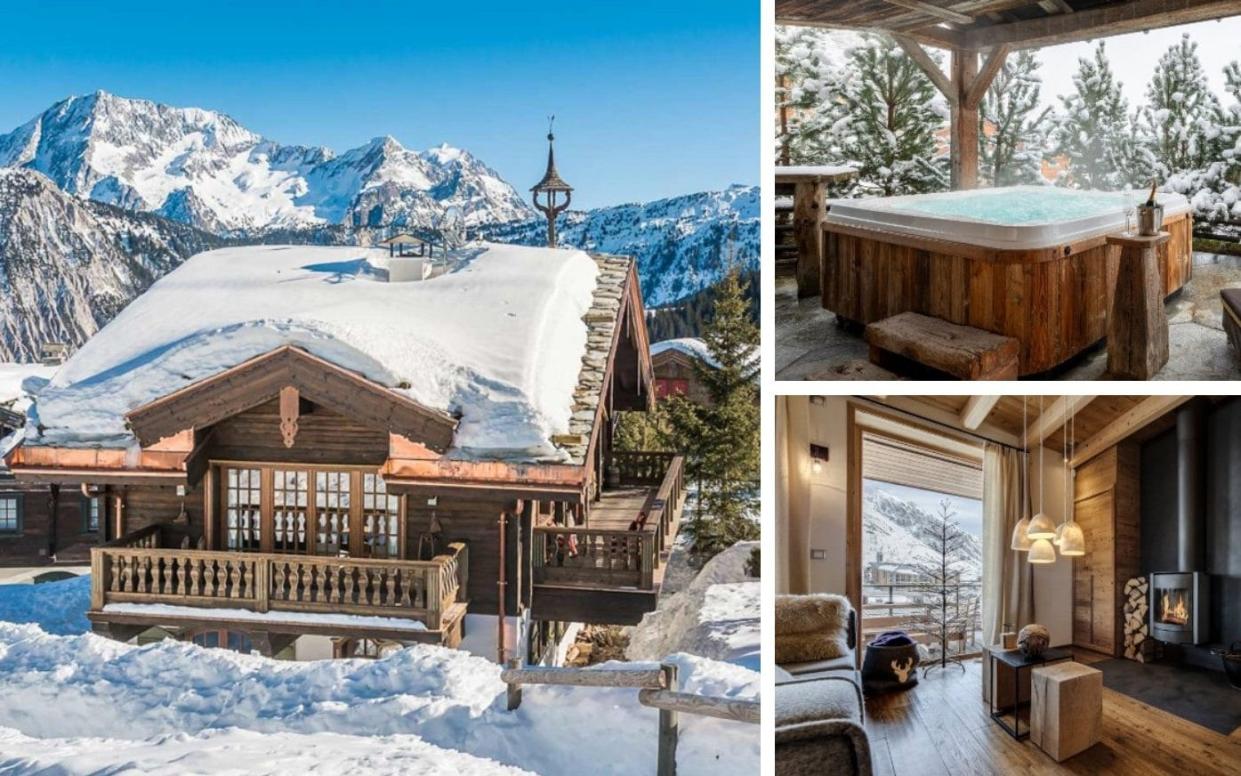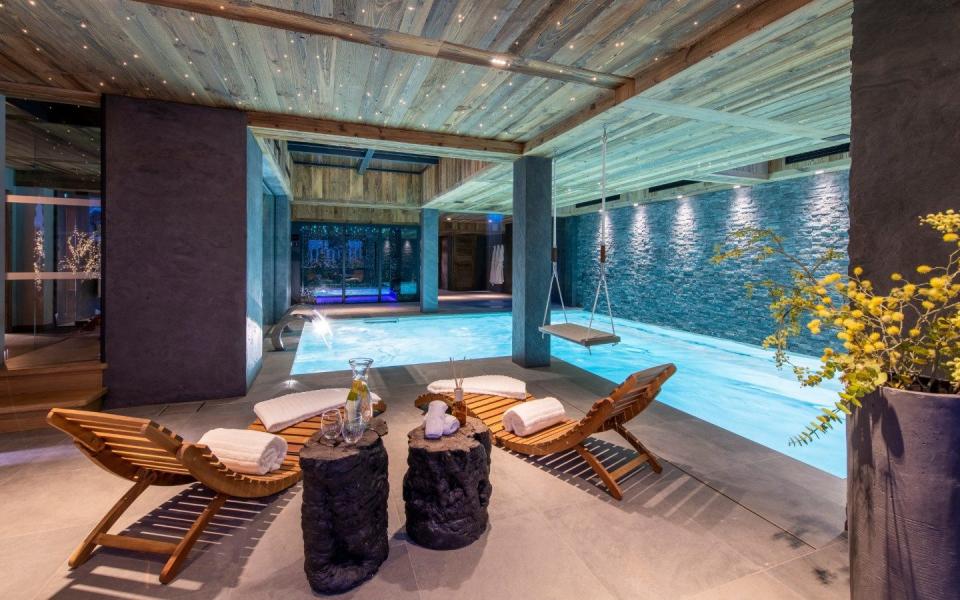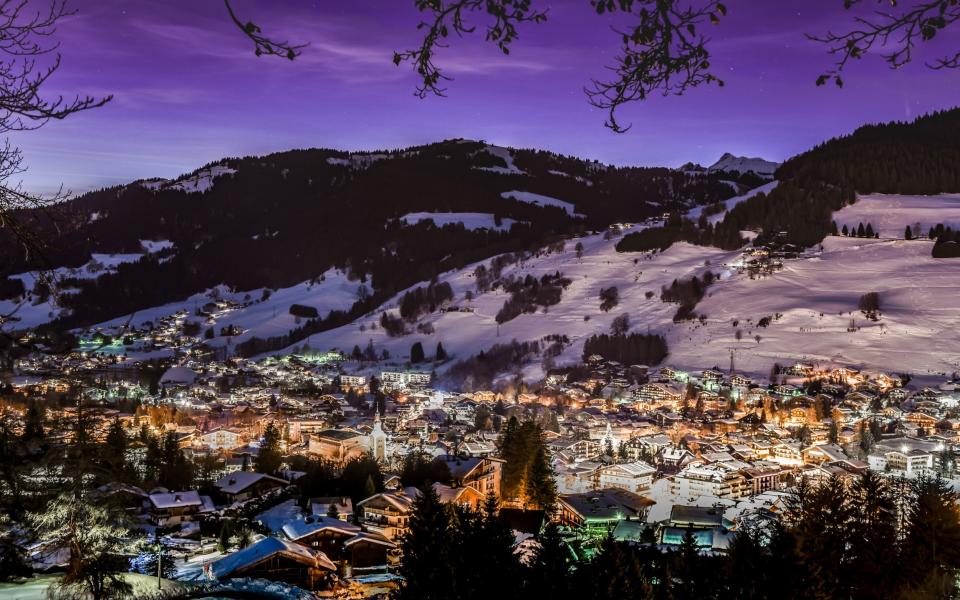The death of the budget ski holiday

Once upon a time skiing was all about, well, skiing. Despite the super-luxe image portrayed by A-listers and film stars, for the majority a holiday on the slopes meant being first in line for the ski lift in the morning and last ones bashing the piste in the afternoon. There were no fancy lunches in mountain lodges and chalets were small, cramped and rarely had enough hot water to go around. Dinner was cooked by an enthusiastic but often culinarily challenged young seasonaire. An evening out for tartiflette or fondue was a once-a-ski-holiday treat.
Although skiing was never an inexpensive sport, the postwar decades had, as Hunter S. Thompson once wrote, transformed skiing from “an esoteric sport for the idle rich, (to) a fantastically popular new winter status-game for anyone who can afford $500 for equipment.”
“Even ten years ago the average cost for a week in a top of the middle range catered chalet with excellent food was only €1,000 (£850) per person,” says Francesca Smith, founder and CEO of ski consultancy Mountain Spy and former owner of ski chalet business Powder N Shine. “In the low season those prices started at €499 (£425).”
Fast forward to today, however, and ski holidays look very different. Michelin-starred restaurants pepper the mountains and the traditional boxy chalets and apartments have largely been replaced by branded hotels and high-end boltholes that come with swimming pools, cinema rooms, libraries and, in some cases, indoor slides. Not to mention the chalet staff that can include private chefs, chauffeurs, and personal concierges.
“The budget end of the market has almost gone,” says James Gambrill, General Manager of the Ski Club of Great Britain and founder of the London International Snowsports Exchange (LISTEX). “The type of accommodation that sold well for operators like Skiworld – the four bedrooms and one bathroom, ski in and ski out properties – these are no more.”
The latest report published by LISTEX on the state of the snow-sports market shows that four-star hotels are the most popular choice among skiers; one- and two-star properties don’t feature. Chalet holidays continue to be the most popular choice for British skiers but these now come at a higher price point than before – those hunting for bargain-basement prices will be bitterly disappointed.

“The number of luxury chalets on the market has grown exponentially,” says Oliver Corkhill, Chief Executive of luxury travel company Leo Trippi. “We have seen a 36 per cent increase in properties with prices over £50,000 per week over the last five years. We have also noticed a considerable rise in high-end properties in lesser-known luxury resorts. For example, this year saw the launch of the spectacular Chalet La Fenice in Cervinia, a resort which has previously been known for its self-catered apartments and high-rise budget-friendly hotels."
“Even resorts like Tignes, which was always a bit edgy and catered to adventurous skiers who liked to go off piste, is now quite conservative with four-star hotels,” says Gambrill.
What has driven the demise in budget-friendly ski holidays?
Demand for premium accommodation
It’s hard to pinpoint just how and when the demise of budget-friendly ski holidays began, but there’s a general consensus that standards in accommodation started to change in favour of luxurious amenities around 20 years ago.
Rupert Longsdon says that the demand for a better chalet experience was the reason he founded the Oxford Ski Company in 1998.
“People would laugh in that British way about being in a ski chalet with five beds and two baths and having OK food,” says Longsdon. “But in other holiday destinations you were getting looked after better, even the Travelodge offered clean and tidy rooms with an ensuite bathroom and hot water. Clients would say to me, ‘I've got the money and I would pay for something better if there was something better out there’.”

Today the Oxford Ski Company’s portfolio of properties start at £20,000 for the week off peak to £500,000 at New Years in Courchevel 1850. Courchevel, which was originally designed to be a functional and affordable ski base dubbed “the people’s ski resort”, is now one of the most expensive ski resorts in the world.
Rise in global demand
Another reason behind the growth in luxury ski accommodation is the rise in the global balance sheet, with China’s meteoric economic growth and wealth creation leading the charge. While the number of skiers in the rest of the world remains static, or even in decline in some countries, skier numbers in China are growing rapidly, further bolstered by the upcoming 2022 Chinese Winter Olympics. According to a recent report by Daxue Consulting, a market research and management consulting firm focusing on the Chinese market, China is projected to become the largest winter sports market in the world with the number of people participating expected to reach 50 million by 2025.
The rise in wealthy winter sports enthusiasts in countries including Brazil, the UAE and Russia has also helped to fast-track luxury accommodation standards.
“Skiing continues to be a costly pursuit and has gradually expanded its appeal to the increasingly wealthy,” says Longsdon. “With this, the variety of clients has also expanded for whom accommodation is a very key element of the holiday. When you’ve experienced a catered luxury chalet with spa facilities, outdoor private hot tubs, indoor pools, and dedicated staff, it’s hard to want for anything else.”
Expansion of luxury chains
And it’s not just chalets where the money is being spent. According to the Ski Report by global real estate company Savills, branded hotels are on the rise. Luxury brands account for 59 per cent of complete branded residences in alpine markets and 80 per cent of those in the pipeline. Megève, the French farming village turned high-end ski resort, now boasts a Four Seasons Hotel. Rumours are that a Mandarin Oriental hotel will be opening soon in Verbier.

“Branded hoteliers have seen an opportunity in the Alps and they are exploiting that,” says Jeremy Rollason, Head of Savills Ski.
Demand for non-ski activities
There’s also the question of what a ski holiday actually means today.
“It’s definitely moved to as much about lifestyle as it is about skiing itself”, says Longsdon. “I know clients who don’t ski but they love the mountains”.
“We have a lot of clients where part of the group doesn’t ski,” says Ceri Tinley, Managing Director of Luxury Chalet Operator Consensio. “So, the facilities in properties are that much more important, as are extracurricular activities.”
It’s perhaps not surprising to discover that those extracurricular activities don’t necessarily involve dancing on tables at La Folie Douce. Instead, non-skiing excursions may include ice driving or snow polo as well as more ‘traditional’ pursuits such as snow shoeing.
Is this the end for budget ski holidays?
So, does this mean the end of the budget ski holiday? Not necessarily.
Although rising costs, new rules for seasonal workers post-Brexit and of course the global pandemic have all impacted catered chalet operators, the model is not dead and buried.
“There has definitely been a growth in the high end chalet market,” says Paul Turnbull, Managing Director of Ski Weekender. “But there are still similar price alternatives out there that there have always been. There are still mid-market operators out there and affordable options.”
Longsdon agrees. “As more and more luxury chalets come to the market, these do not replace other options, but simply give alternative options. Skiers are a diverse cross section and whilst it was once easier to put everyone into the same “bucket”, this is simply no longer the case.”
Encouragingly, alternative wallet-friendly accommodation options are appearing across resorts. Base Camp Lodge is the second hostel to open in Les 2 Alpes (the People Hostel opened three years ago), offering modern, spacious accommodation that include dormitories where beds cost from €35 a night. Double rooms start at €95. The group also has hostels in Bourg Saint Maurice and Les Arcs. In Les Menuires and La Plagne are the Ho36 hostels that offer, among other options, loft-style apartments with a kitchenette that can sleep four to 10 people with prices starting at €109 a night.
So, while the ski scene might not look the same as it once did, there are still options for skiers that don’t cost the same as a deposit on a house. Plus, you can still be first on the ski lift in the morning and last on the slopes in the afternoon. And tartiflette can still be found on the menu.

